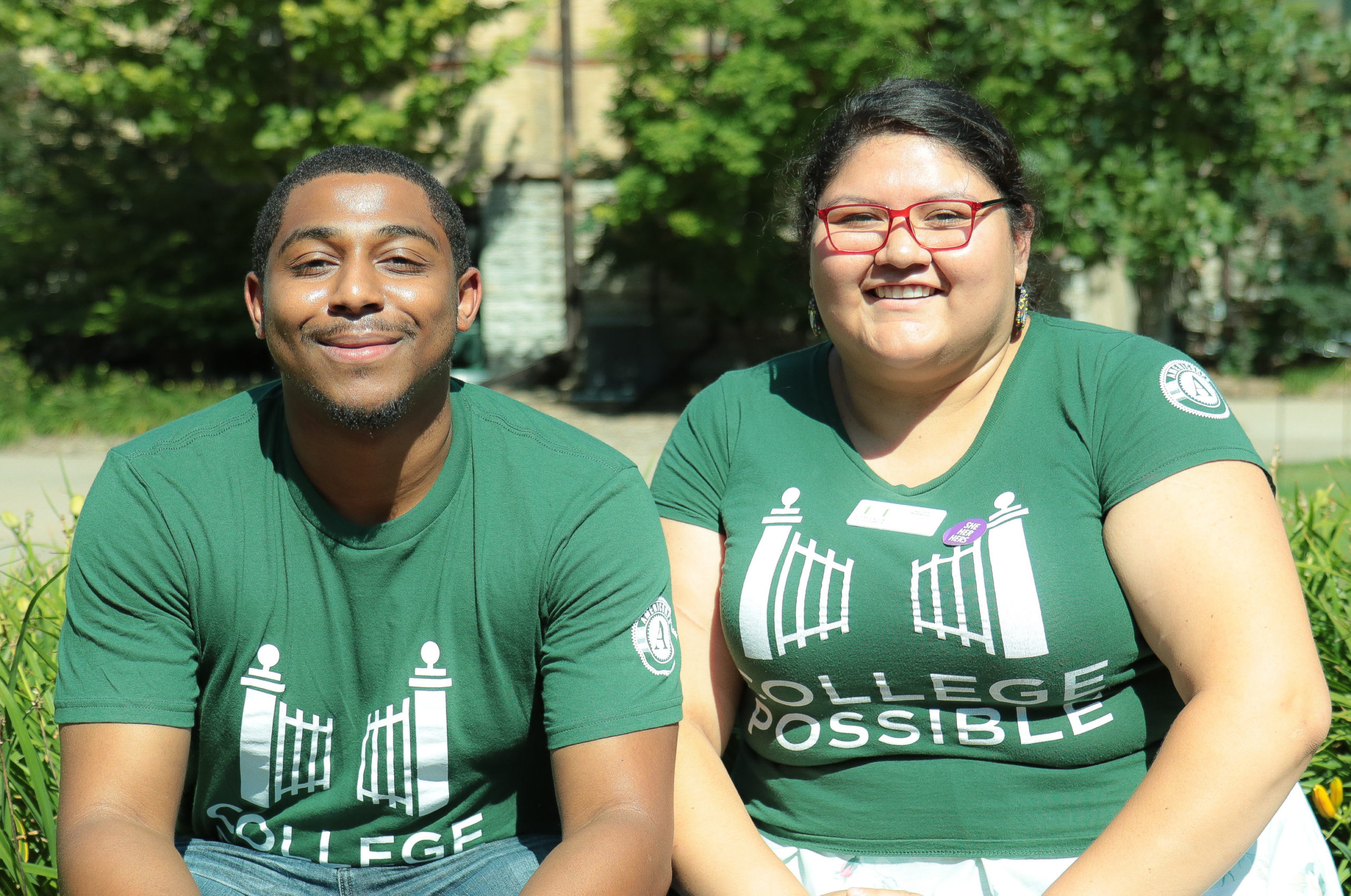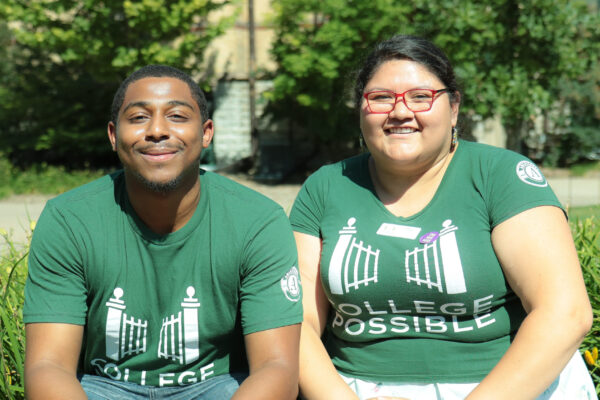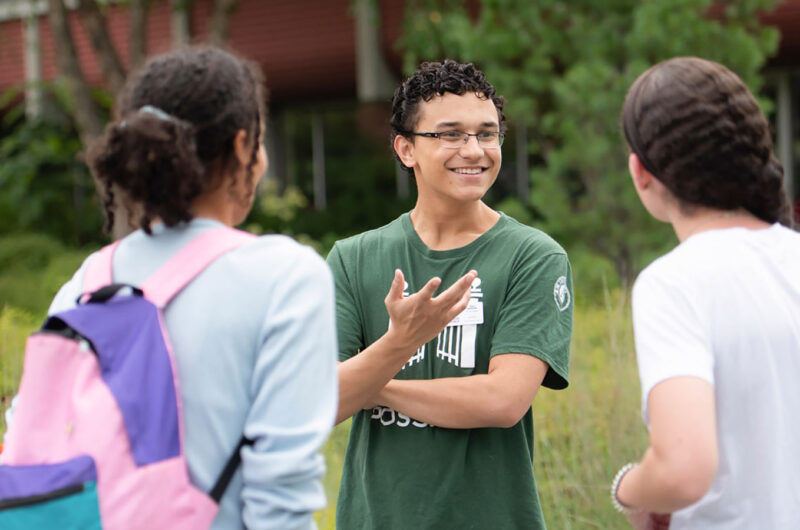 Since fall 2018, Coe College and College Possible have collaborated to support students from low-income backgrounds from their first year to graduation. With College Possible’s help via a Catalyze partnership, Coe College has demonstrated its commitment to creating an environment that fosters students’ success and social belonging.
Since fall 2018, Coe College and College Possible have collaborated to support students from low-income backgrounds from their first year to graduation. With College Possible’s help via a Catalyze partnership, Coe College has demonstrated its commitment to creating an environment that fosters students’ success and social belonging.
Coe College coaches, Kyrsha Balderas and Steven Sharkey-Dye (“Sharkey”), returned for a second year of service with College Possible and AmeriCorps. At Kick-Off, College Possible’s annual training event to welcome new AmeriCorps members, Kyrsha and Sharkey led a session for new coaches called “Year One: Conquering Being a Coach.” There they shared advice on topics such as addressing vulnerability and maintaining a work-life balance. We sat down with Kyrsha and Sharkey to discuss the power of near-peer coaching and how they help students gain a sense of community on campus.
The Role of Near-Peer Coaching: Highlighting Student Assets
In addition to being recent graduates of Coe College, both Kyrsha and Sharkey are first-generation students from low-income backgrounds. Kyrsha and Sharkey believe those shared experiences give them the confidence and knowledge to ensure their students are successful. For Sharkey, his relatability enables him to develop meaningful relationships with his students, help them overcome personal challenges and recognize the value and assets they bring to campus:
“All these circumstances students come to college with, whether it be first-generation, low-income, etc., by inserting [success] coaches, we’re able to help them with those challenges and ensure that they’re on par with their peers, to ensure they’ll be successful and that those circumstances aren’t going to hold them back but will only make them stronger.”
Reframing challenging lived experiences as assets for students was one approach coaches learned about at Kick-Off. It is critical for students to understand the considerable value and talents they possess not in spite of the challenges but because of them. With the help of our near-peer coaches, students learn from others who have had similar obstacles and how they have come to appreciate them.
Social Belonging
Research has shown that student persistence, retention, and overall well-being are correlated to students’ sense of belonging on campus, especially for first-generation and low-income students[1]. By adding thoughtful and welcoming touches to their campus location, Kyrsha and Sharkey have created a space that gives students the sense that they are coming home to their family. It is here that they connect with their students and make them feel part of a community. Kyrsha explained:
“Without a sense of belonging, there isn’t a reason to try because if you don’t have a place to go, if you don’t feel like your peers respect you, understand you or even want to get to know you, why would you keep coming back? That’s what out College Possible program does. It makes sure that these students have a place to go and to celebrate those little wins with.”
The Catalyze program has provided students at Coe with a community where they can be themselves, share their strengths and be part of a College Possible family.
[1] Tinto, V. (2016, September 26). From retention to persistence. Inside Higher Ed.

